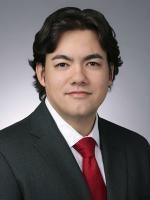SB 951, which bolsters existing Oregon law prohibiting the corporate practice of medicine (CPOM), passed the state House of Representatives on May 28 and now awaits the signature of Governor Tina Kotek.
As EBG noted in a recent blog, the majority of states have some form of CPOM restriction. Oregon’s doctrine stretches back to 1947, when the state supreme court in State ex. rel. Sisemore v. Standard Optical Co. of Or. banned corporations from owning medical practices, practicing medicine, or employing physicians.[1]
Since then, however, Oregon has sought to strengthen its CPOM rules legislatively, as entities have “sought to circumvent the ban through complex ownership structures, contracting practices, and other means,” as SB 951 states.
The bill is designed to disrupt historically accepted CPOM structures by banning certain arrangements that are inherent to Friendly PC models and placing limitations on Management Service Organizations (MSOs). The sponsors of SB 951 claim the bill is said to close loopholes where private equity firms, management companies, and/or corporations employ or contract with physicians who are listed as owners but do not necessarily control the practice—helping to ensure that physicians retain authority over clinical decision making. SB 951 thus aims to
- Restrict the control of MSOs over the clinical and operating decisions of physician-owned practices;
- Prevents dual employment arrangements where MSOs employ physicians to bypass a CPOM ban; and
- SB 951 also limits noncompetition, nondisclosure, and nondisparagement agreements.
The Restrictions
Section 1. The bill prohibits MSOs—defined as those providing management services to a professional medical entity, under a written agreement and in return for monetary compensation—or MSO shareholders, directors, members, managers, officers, or employees from
- Owning or controlling a majority of shares in a professional medical entity with which the MSO has a contract;
- Serving as directors, officers, employees, independent contractors of (or otherwise receiving compensation from) the MSO, in order to manage or direct the management of a professional medical entity with which the MSO has a contract;
- Exercising control or entering into an agreement to control or restrict the sale or transfer of a professional medical entity’s shares or cause a professional medical entity to issue shares of a professional medical entity; and
- Exercising de facto control over administrative, business, or clinical operations of a professional medical entity in a manner that affects the entity’s clinical decision making or the nature or quality of care that the entity delivers. Includes hiring and terminating, setting work schedules or compensation for, specifying terms of employment of medical licensees; setting clinical staffing levels, making diagnostic coding decisions, and more.
Bullet number two is one of the most significant restrictions contained in SB 951 because it severely limits the overlapping ownership and control between the MSO and the professional medical entity, a key characteristic of Friendly PC models that ensure alignment between the MSO and the professional medical entity. Bullet number three is also a major restriction because, subject to some limited exceptions, it essentially prohibits stock transfer restriction agreements between a MSO and an owner of a professional medical entity, another common feature of the Friendly PC model.
An MSO is not prohibited from:
- Providing services that do not constitute an exercise of de facto control over administrative, business, or clinical operations of a professional medical entity in a manner that affects the entity’s clinical decision making or the nature or quality of care that the entity delivers;
- Purchasing, leasing, or taking an assignment of a right to possess the assets of a professional medical entity in an arms-length transaction with a willing seller, lessor, or assignor;
- Providing support, advice and consultation on all matters related to a professional medical entity’s business operations.
Exceptions. SB 951 has been criticized for creating “numerous carveouts” that discourage competition and investment by mandating who may participate in the health care market and who may not.
“Exempt providers include: Hospitals, behavioral health facilities, PACE organizations, crisis lines, tribal health programs, care facilities, and independent practice organizations. These are all exempt…continuing business as usual while independent providers face burdensome regulations,” Rep. Ed Diehl of the Oregon House of Representatives wrote in testimony. ”If this is such a good idea, why exempt these organizations?”
These prohibitions do not apply, for example, to an individual who provides medical services or health care services for or on behalf of a professional medical entity if the individual
- Does not own or control more than 10 percent of the total shares of or interest in the professional medical entity;
- Is not a shareholder in or a director, member, manager, officer, or employee of an MSO; and
- Is compensated at the market rate for the medical services or health care services and the individual’s employment and services regarding the MSO are entirely consistent with the individual’s professional obligations, ethics and duties to the professional medical entity and the individual’s patients.
As noted above by critics, the exemptions include
- An individual owning shares or an interest in a professional medical entity and an MSO with which the professional medical entity has a contract for services, under certain conditions;
- A professional medical entity and the shareholders, directors, members, managers, officers, or employees of the professional medical entity; under certain conditions;
- A physician who is a shareholder, director, or other officer of a professional medical entity and who also serves as a director or officer of a MSO with which the professional medical entity has a contract for management services, under certain conditions, including if the professional medical entity contracting with the MSO is solely and exclusively, for example; a hospital or hospital-affiliated clinic; long-term care facility; residential care facility; PACE organization; behavioral health care provider; mental health or substance abuse disorder crisis line provider; and more.
- Telemedicine or coordinated care organizations, under certain conditions.
Sections 2 and 3. With exceptions, these sections amend ORS 58.375 and 58.376 to restrict how a professional corporation (PC)—i.e., a corporation organized for the purpose of practicing medicine/rendering professional health care services—may remove directors or officers, or how it may relinquish or transfer control over the PC’s administrative, business, or clinical operations. PCs may remove a director or officer by means other than a majority vote of shareholders if the director violated a duty of care, was the subject of a disciplinary proceeding, engaged in fraud, etc.
Section 5. SB 951 provides that all officers of a PC, except the secretary and treasurer, must be naturopathic physicians who must hold a majority of each class of shares of the professional corporation that is entitled to vote and be a majority of directors of the professional corporation. An employee or person who holds an interest in the professional corporation may not direct or control the professional judgment of a naturopathic physician who is practicing within the professional corporation.
Section 7. This voids 1) noncompetition agreements that restrict the practice of medicine or nursing, under certain conditions; and 2) nondisclosure or nondisparagement agreements between medical licensees and MSOs, hospitals, and/or hospital-affiliated clinics, under certain conditions.
Takeaways
Contracts or other agreements between MSOs and professional medical entities or medical licensees that violates the provisions of SB 951 may be void and unenforceable; too, MSOs may face an action by a medical licensee or professional medical entity suffering a loss of money or property.
If SB 951 is signed into law by Governor Kotek it will take effect immediately, with the following caveats:
- Section 1 first applies on January 1, 2026, to 1) MSOs and professional medical entities incorporated or organized in the state on or after the effective date of the legislation; and 2) sales and or transfers of ownership or membership interests in such MSOs or professional medical entities occurring on or after the effective date of the legislation.
- Section 1 first applies on January 1, 2029, to 1) MSOs and professional medical entities existing before the effective date of the act and to 2) sales or transfers of ownership or membership interests in such MSOs or professional medical entities that occur on or after January 1, 2029.
- Sections 5, 7, and 8 and amendments to ORS 58.375 and 58.376 apply to contracts entered into or renewed on or after the effective date of the legislation.
We do expect litigation regarding this bill and will keep you updated on further developments.
Epstein Becker Green Staff Attorney Ann W. Parks contributed to the preparation of this post.
ENDNOTES
[1] 182 Or. 452 (1947).





 />i
/>i
